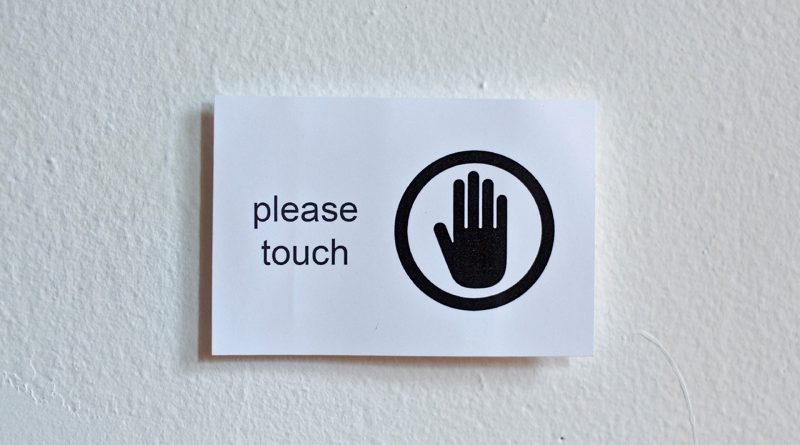October 3rd, 2019: “Tactless: touching Holocaust memory” a curatorial experiment and workshop
WORKSHOP:
October 3rd, 12 – 2pm
EXHIBITION OPENING:
October 3rd, 5-7pm
VISITING HOURS:
October 4-10th
Monday – Friday, 10am – 4pm
Tactless: touching Holocaust memory is a curatorial experiment and workshop comprising “moments” in Holocaust remembering. The project will explore how powerful memories transform, break down, and are reformulated – in awkward, yet potentially emancipatory ways – even as we try to preserve, replicate, and re-generate them. The exhibition opening and workshop will take place on October 3rd at Concordia’s Curating and Public Scholarship Lab (CaPSL). The exhibition will remain open to the public Monday to Friday, 10am – 4pm from October 3rd – 10th, 2019.
Tactless is curated by two Concordia Faculty members, Dr. Erica Lehrer (History/Anthropology) and Dr. Rachel Berger (History/Simone de Beauvoir Institute) and two students, Florencia Marchetti (Concordia/HUMA PhD) and Maciej Topolski (Jagiellon University PhD/MITACS Fellow). The curators are working collaboratively, each contributing artworks and artifacts to an integrated installation. Their personal experiences and interdisciplinary approaches are set in dialogue with one another around the common themes of intergenerational trauma and Holocaust memory..
⥊ ⥊ ⥊ ⥊
WORKSHOP DETAILS
October 3rd
12 – 2pm
at the Curating and Public Scholarship Lab
The “Tactless: Touching Holocaust Memory” workshop has two parts.
Part 1, led by Dr. Berger
Rachel Berger will explore the broader context for thinking about the tactile and the tactless in the account of a broken family heirloom. Dr. Berger will use this opportunity to think more thickly about intergenerational trauma, layered histories of settling/unsettling space, and the transition of meaningful objects to less-loaded material artefacts of the past.
Part 2, led by Maciej Topolski
Along with participants, Topolski will think through the differences between visual and tactile memories (primarily in the context of difficult past), methods for constructing tactile meanings (those connected to emotions and bodily states), and the development of new language – similar to colour descriptions – to pinpoint tactile sensations.
⥊ ⥊ ⥊ ⥊
“There Is (No) Tactile Anthropology” a presentation by Maciej Topolski
October 10th, 2pm
at the Curating and Public Scholarship Lab
In this presentation Polish cultural studies PhD student Maciej Topolski will explore the absence of a Tactile Anthropology as well as a language to articulate the experience of touch more generally. Based on a three-month residency at Concordia’s Curating and Public Scholarship Lab (CaPSL) as a MITACS Globalink Fellow where he undertook research-creation at the intersection of Museum Studies and Sensory Studies, Topolski will discuss nostalgia as a longing for familiar surroundings (in a modern city), loneliness as a lack of kinship (a term used in Korea and Japan to describe the act of intimate, non-sexual touching), and the strangeness of foreign languages and cultures (creating not only a different mindset, but also demanding new bodily techniques).
As Pablo Maurette writes in “Meditations on Touch,” touch is a forgotten sense. It is forgotten by academics, who are afraid of writing about their intimate, embodied, emotional experiences at the risk of losing their “objective” relation to knowledge. And it is forgotten by city-dwellers, for whom communication takes place via talk and electronic devices and “being in touch” is a fleshless metaphor for human contact. The absence of tactile anthropology – and tactile language – is based on a deep set of cultural constructions that separates us from sensations of connection to one another, and constrains the sense of touch to only intimate spaces. Maciej Topolski is from Kraków, Poland, and is a 2019 MITACS Globalink Fellow at Concordia University’s Curating and Public Scholarship Lab.
Maciej Topolski is a poet, essayist, translator, and PhD student/lecturer in the Anthropology of Literature and Cultural Studies at the Jagiellonian University, focused on the experience of touch.
*The title of this lecture is from Concordia Centre for Sensory Studies researchers Constance Classen and David Howes’s article “The Museum as Sensescape: Western Sensibilities and Indigenous Artefacts.” In Elizabeth Edwards, Chris Gosden and Ruth Phillips (eds), Sensible Objects: Colonialism, Museums and Material Culture, pp. 199–222. Oxford: Berg, 2006.
⥊ ⥊ ⥊ ⥊
ACCESSIBILITY
The Curating and Public Scholarship lab is regrettably not wheelchair accessible. There is one small flight of stairs leading to the entrance of the space, but otherwise, the 6th floor of the library building is accessible by elevator. We ask that visitors refrain from using scented products prior to entering the space.
To raise other accessibility requests or questions please contact Alex by email at alex.robich@gmail.com

